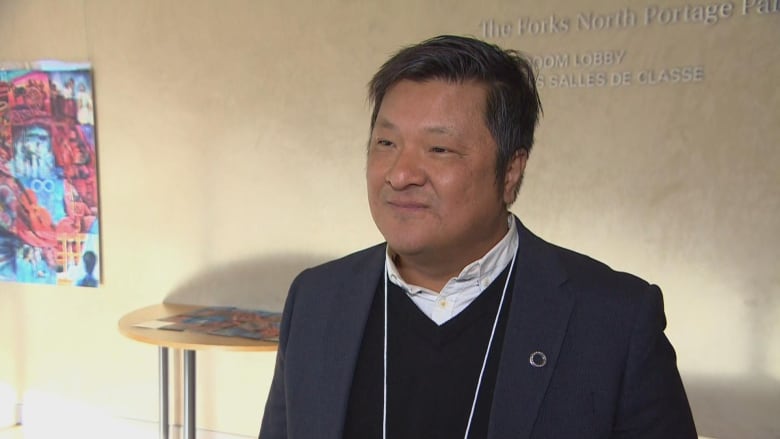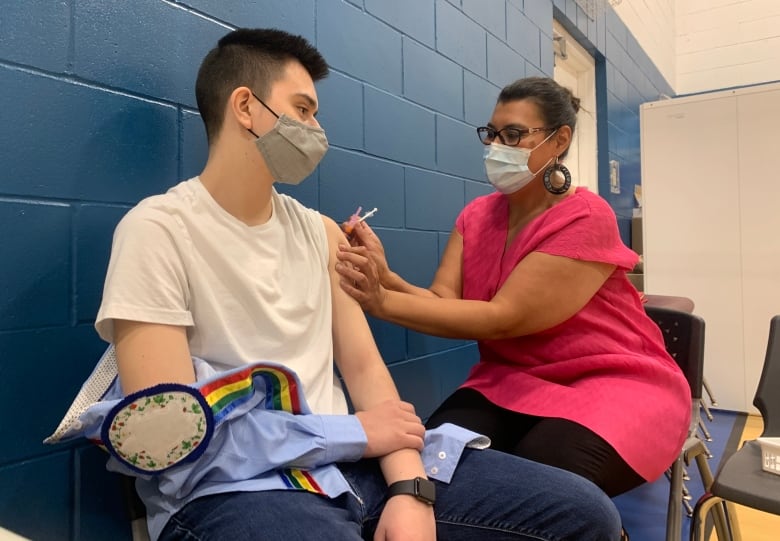Manitoba is launching a new system-wide expansion of race-based data collection in hospitals, building on efforts to track how different racial groups were disproportionately impacted by COVID-19.
Beginning this spring, the province will ask patients to self-declare their racial or ethnic background as part of the hospital admission process, making Manitoba the first Canadian jurisdiction to do so, according to the University of Manitoba.
“Black, Indigenous and racialized people actually receive significantly unequal care by race, and that is a reflection of how multi-level racism operates in our health-care system,” said Dr. Marcia Anderson, executive director of the Ongomiizwin Indigenous Institute of Health and Healing at the U of M Rady Faculty of Health Sciences.
“If we are not able to hold up that mirror and use data and evidence, what happens is a failure to act to change.”
Anderson said the data will enable service providers to “disrupt and destroy systemic racism in health care.”
She will lead the program, jointly run by the U of M and Shared Health, the provincial agency that co-ordinates health-care services. The George and Fay Yee Center for Healthcare Innovation at the U of M will evaluate the program and help develop training for hospital staff.
Patients will be asked to volunteer information about their identity starting in April, choosing from categories such as First Nations status, Inuit, Métis, Black, Filipino, Southeast Asian, African, Chinese, South Asian, Latin American, Middle Eastern or white.
In a statement, Monika Warren, chief operating officer of Shared Health provincial services, said while the disclosure is entirely voluntary, “it is an important element in our efforts to improve patient care, health reporting and planning, and health system performance and services. “
A 1st in Canada
While race-based hospital data was collected in other countries, such as the US, Australia and England, Manitoba’s is the first such program in Canada, according to Anderson.
Other Canadian jurisdictions have gathered, or will start gathering, some race data. For example, last fall, Nova Scotia started asking people to apply to renew provincial health cards to declare races and language information.
But none have gone so far as to attempt to collect it from all hospital patients, Anderson said. She suggested the Manitoba approach would provide higher-quality data quickly.

“It’s really important, collecting this race-based data, because it sort of sheds a light on the disparities in terms of health outcomes,” said Souradet Shaw, an assistant professor at the U of M and a Canada Research Chair in global public health .
Shaw said it will be important to ensure data collection doesn’t stigmatize certain populations.
Dr. Alan Katz, a professor in family medicine and community health sciences at the U of M, said a culturally sensitive approach would be needed.
“If people are self-declaring being of First Nations or other racial groups that are at risk for racism, then they are opening themselves up to that kind of discrimination,” said Katz.
“That’s a potential significant harm.”
Expanding pandemic approach
The initiative follows previous efforts by Shared Health and the Manitoba First Nations COVID-19 Pandemic Response Team, which was also headed by Anderson.
The Cree-Anishinaabe physician helped conduct demographic studies that found disparities in infection rates and more severe COVID-19 outcomes in Black, Indigenous and other communities of colour.
Anderson and others attributed those trends in part to social determinants of health — such as employment and overcrowded housing, particularly in some First Nations — and systemic racism that creates barriers to care.
Anderson said that the data led to an approach that applied different age criteria for immunization to different demographics — deviating from the initial advice of the National Advisory Committee on Immunization.
For example, when Manitobans who were 80 or older became eligible for COVID-19 vaccines, First Nations people 60 and over became eligible.
The data also suggests a vaccination lag in some Black, Indigenous and people of color communities. The province then started extending eligibility to people living in certain neighborhoods with a high proportion of BIPOC residents, said Anderson.
More immunization sites were also opened in these areas.

“Once the vaccine was accessible … diverse enough, Black, Indigenous and racialized people got vaccinated to completely change the demographics of who was getting COVID-19,” Anderson said.
“The overrepresentation of BIPOC communities among those being infected actually dropped.”
In the works for years
Anderson’s work on the topic began well before the pandemic. Demographic data was the subject of her master’s degree in public health research over 15 years ago.
After the Truth and Reconciliation Commission report in 2015, the Winnipeg Regional Health Authority asked Anderson to start working on the commission’s call to action No. 19, which relates to closing the gaps in health outcomes between Indigenous and non-Indigenous communities.
Shared Health then tapped her to expand her focus to the entire province.
All of that provided a foundation for COVID-19 race-based data collection, she said.
The pandemic also showed there was significant public buy-in for the idea, said Anderson.
She hopes to be able to start sharing hospital data publicly in the next year or so, and how it may be used.
“I hope that Manitoba becomes known for providing high quality, culturally safe health care that is free of racism.”
Beginning this spring, the province will ask patients to self-declare their racial or ethnic background as part of the hospital admission process, making Manitoba the first Canadian jurisdiction to do so, according to the University of Manitoba.

